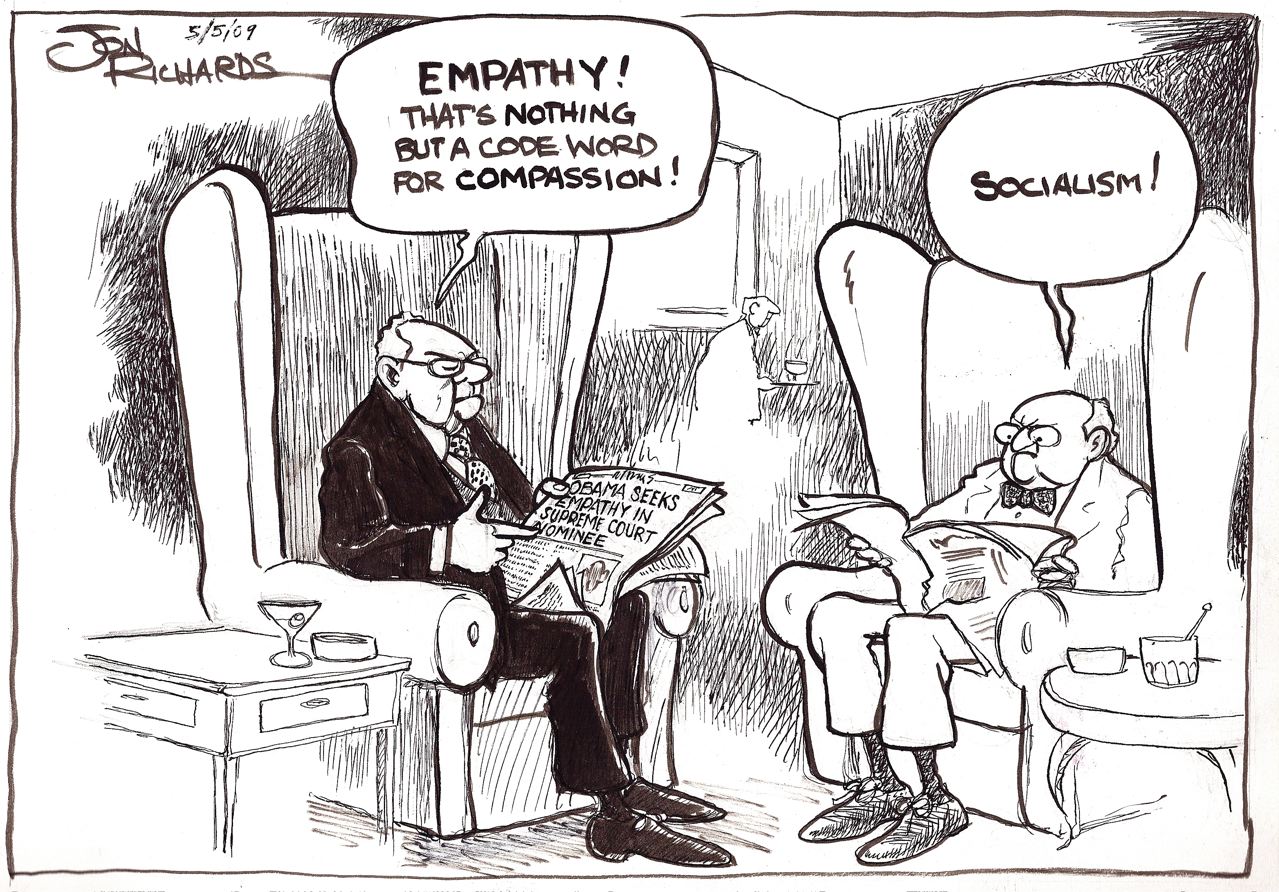"I resent people who say writers write from
experience. Writers don’t write from experience,
though many are hesitant to admit that they
don’t. I
want to be clear about this. If you wrote from
experience, you’d get maybe one book, maybe
three
poems.
Writers write from empathy."
One of the principles about reading that I have been testing for years is that reading and writing are more intimately connected than people think. Now, I know this is not revolutionary, right? But look at Nikki Giovanni's quote again. If that principle is true, and writers write from empathy, then readers ought to read from empathy. Then, obviously, teachers ought to teach how to read empathically. This is something that I have been talking with teachers about now for a couple of decades, but aside from material on role-playing as a way to increase an empathetic sensibility, I haven't found much.
One of the principles about reading that I have been testing for years is that reading and writing are more intimately connected than people think. Now, I know this is not revolutionary, right? But look at Nikki Giovanni's quote again. If that principle is true, and writers write from empathy, then readers ought to read from empathy. Then, obviously, teachers ought to teach how to read empathically. This is something that I have been talking with teachers about now for a couple of decades, but aside from material on role-playing as a way to increase an empathetic sensibility, I haven't found much.
I had been working on some ideas about "precursors" to empathy (that will perhaps become a later blog post), and then began to see that, for many people, protocols worked well as a harbinger of internalized behavior. Could I develop an "empathy protocol" that I could experiment with on the literature I was teaching this spring?

At about the time I was implementing this protocol, CITYterm had the chance to see Here Lies Love in the previews stage of production at the Public Theater. This production, put together by musicians David Byrne and Fatboy Slim and directed by Alex Timbers is an immersive theatrical experience that "deconstructs the astonishing journey of First Lady Imelda Marcos from her meteoric rise to power and subsequent descent into infamy and disgrace." While it is an amazing show that has been extended three times, and it was fascinating to watch David Byrne walking around all in white (with matching hair) taking notes throughout, it was the "pre-talk" with Alex Timbers that gave me the most pause to ponder how one creates empathy.
One of the questions that one of the students asked was precisely that--how does an author enter so deeply into Imelda Marcos' head that they could believe they understood her and make the audience believe that as well?
Alex's response (from my cribbed notes) was something like this, "Well, we started by avoiding the obvious cliches of her shoe fetish which might have flattened her; it was too much of a heavy handed symbol and a judgment on her. We were exploring. So one thing that emerged was her love of disco and Studio 54. And the techno-club music became a kind of metaphor for the totalitarian kind of rhythm but also the kind of euphoria of the dance club was the kind of euphoria of being in power."
At this point another student asked, "But how do you know where to start?"
Alex responded, "Well, in this case, we went back to the beginning. To certain assumptions she had about life right from the start. And those assumptions frequently took the form of questions she asked herself--Is it a sin to love too much? Is it a sin to care? and, ultimately, Why don't you love me? That is the question that drove her."
"How do you come up with these metaphors, assumptions and questions?" I asked.
"Actually much of it is kind of intuitive at first. They come to you after you have immersed yourself, but then you start to look at them critically to see if they actually work together to give you a full sense of who she is." Alex ended, and we headed up to the show. On the way up the stairs one of the students asked me, "Did you pay him to say that stuff?"
In asking this question the student was making reference to the "empathy protocol" that the class had been using to explore some short stories the week before. What follows below is the exact "empathy protocol" the students received in class:
How to practice
EMPATHY?
A Beginners guide
To
start with:
For
now, let’s start with a definition that views empathy as "the capacity to
imagine the thoughts and feelings of the inner life of another person—deeply
understanding how someone else constructs the world.” In order to practice
empathy you obviously have to be able to change your perspective, but you also
have to try to see the world the way the other person ”constructs” it. When we
construct the world we have certain feelings, certain thoughts, certain
metaphors and myths that are the foundations of our world, and we also access
and apply our past experience.
Empathy
is, almost by definition, an act of the imagination. You are not another person; you are you. Therefore, practicing empathy may be
more like calculus than algebra.
You are trying to get as close
as you can to the objective, but you will probably never completely
reach it. Everyone says, "imagination is more important than knowledge”—let’s see
if that is true.
Finally, empathy is the ability to inhabit someone else’s way of constructing the world—intellectually, emotionally,
psychologically and physically.
What
skills might help us do this?
1) Avoid Judgment: I
bring this up only because we are so conditioned to be judgmental (in good
and bad ways). I wonder, in fact, if this is the goal of high school and our prime way of being in the world? Being
judgmental does NOT help, however, in being empathetic.
2) Deep Listening/Mindfulness/Metaphors:
Be fully present when you are trying to be someone else. Prepare yourself to listen for the METAPHORS that are the foundation of how
this character constructs the world. The premise here is that we have "metaphors we live by" that are foundational. These may take the form of stories,
mottos, slogans, or myths. They will be revealed in what the character does and
does not say, by their actions, and sometimes by the most nuanced of gestures.
Some of them may be explicitly stated, but, oftentimes, they will be embedded
and only implicit.
3) Group Identity
Identifiers: We think of ourselves as individuals, but also a members of different groups. Being empathetic would require being aware of the degree and intensity of the identification on the part of any given individual on a given occasion. Are there groups (race, gender, religion,
nationality, geography, age, sexual orientation, etc) that are particularly
important to this character in constructing how they see the world? When does
the character see themselves as an individual? When as a member of a group?
4) Premises and Assumptions:
Premises are foundational beliefs that we are aware that we hold; assumptions,
however, are often more deeply embedded and we are unaware that we hold them.
However, both premises and assumptions can be inferred and deduced from
people’s words and behaviors. Sometimes these are individual to the particular person, but sometimes they are group assumptions. For example, to be an American is to have internalized the children's story of The Little Engine That Could. The culture inculcates a sense of, "I think I can, I think I can."
5) Questions characters are asking
themselves: We are all in the process of asking ourselves
different questions as we live our lives. What are the questions your character
is asking? The trick here is to be really precise in your phrasing of the
question(s) you think they are asking.
The Role of Intuition in practicing Empathy:
Don’t think of yourself as trying to “answer” these questions that might pop up. Think instead of being spontaneous. This will allow you to tap the creative unconscious part of your mind to develop. Don’t “analyze” the data you have collected to answer it, just answer it. We can then, later on, see if it seems to be accurate. The paradox is that the more you know from your protocol, the more you can “forget” it and just “be the other person.”
I am off to start what will be wonderful week exploring at the Teaching for Experience workshop we run each summer, but in the next blog post I will discuss some reactions and responses that I got from students about this process. It certainly did not work for everyone; but for some people it became a very powerful reading technique that produced some remarkable results.
Don’t think of yourself as trying to “answer” these questions that might pop up. Think instead of being spontaneous. This will allow you to tap the creative unconscious part of your mind to develop. Don’t “analyze” the data you have collected to answer it, just answer it. We can then, later on, see if it seems to be accurate. The paradox is that the more you know from your protocol, the more you can “forget” it and just “be the other person.”
I am off to start what will be wonderful week exploring at the Teaching for Experience workshop we run each summer, but in the next blog post I will discuss some reactions and responses that I got from students about this process. It certainly did not work for everyone; but for some people it became a very powerful reading technique that produced some remarkable results.

No comments:
Post a Comment